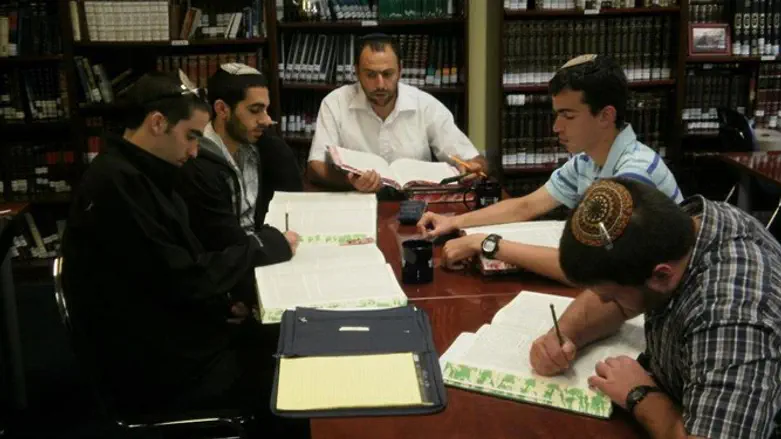
This Dvar Torah is by Avishav Engle, former shaliach in Melbourne (2017-18), currently studying electrical engineering at the Technion Institute of Technology
Every so often we come across a passuk that has a deep message for us both in olam haHalacha and in olam haMachshava. This week, in Moshe’s climatic rally, we are taught the following:
כי שם ה' אקרא הבו גדל לא-להינו (דברים לב:ג)
When I will proclaim the Name of Hashem, ascribe greatness to our G-d. (Deut. 32:3)
This passuk is best known as the halachic source (Bavli, Brachot 21a) for our mitzvah of saying Birchot HaTorah before we learn G-d’s holy manifest, but the Meshech Chochmah brings to light for us a whole new, much deeper, perspective.
The Meshech Chochmah writes on this passuk that it defines for us our entire raison d’être as a people and a nation: Our purpose is to live within the natural world, but to demonstrate and declare G-d’s providence and His supervision over our individual lives. We are to sow and plant and reap – but to then take the first portions of our crops to the Bet HaMikdash, and to G-d’s holy servants there. Three times a year, we are to entrust our possessions [back home] to G-d’s protection, as we show ourselves before Him in the Temple.
He goes on to specify that when we live this way – acting correctly and fulfilling our purpose – the earth seems to acknowledges this by more generously yielding its produce. All of this, however, happens within the laws of nature, and does not require altering them through miraculous intervention.
If this message was relevant in Early 20th Century Latvia and Lithuania, how much more should it resonate with us now that we have our own natural world State, with a natural economy, infrastructure and political system?
Rav Kook writes that one of the reasons Am Yisrael was exiled in the first place was that they weren’t managing to fulfill this purpose and couldn’t infuse their statehood with Torah. They were sent out of Eretz Yisrael in order to be able to focus on the Torah, without the burdens of the “(nation-wide) natural world”.
Now that we have been called back home, we must certainly see to it that we rise to the challenge and infuse our national lives with G-d’s Torah. We must strive to take these natural surroundings and elevate them, using them as our media via which we proclaim G-d.
כי שם ה' אקרא הבו גדל לא-להינו
Torah MiTzion stands in the forefront of the battle for the future of the Jewish people in the Diaspora, offering religious-Zionist Torah scholarship to Jewish communities throughout the world and strengthning the bond between the Jewish people in the Diaspora and in Israel via the study of Torah.
